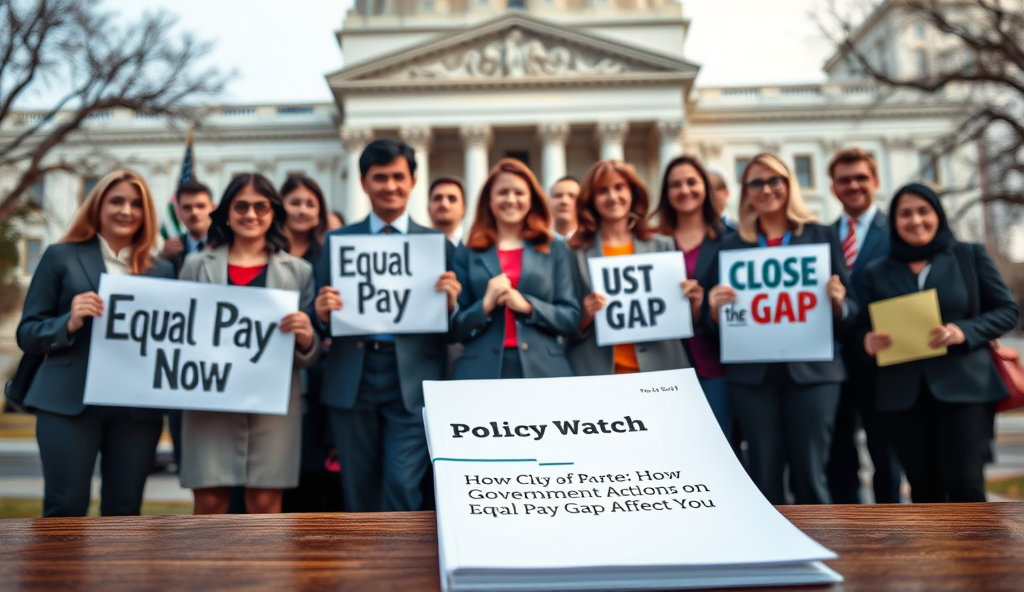Introduction: Understanding the Equal Pay Gap in Nigeria
The gender pay gap in Nigeria persists despite global progress, with women earning significantly less than men for similar roles. Recent data from the National Bureau of Statistics shows women earn 30% less on average, highlighting deep-rooted wage inequality between men and women in Nigeria.
This disparity stems from cultural biases, occupational segregation, and limited access to leadership roles.
In sectors like banking and tech, where women constitute nearly 40% of the workforce, salary disparities remain stark due to discriminatory promotion practices. Even in female-dominated fields like education and healthcare, men often occupy higher-paying positions, perpetuating Nigeria’s gender wage gap statistics.
These systemic issues require urgent policy interventions to ensure equal pay for equal work in Nigeria.
Understanding these challenges sets the stage for examining the current state of gender pay inequality in Nigeria, where legislative gaps and corporate practices continue to disadvantage working women. Addressing salary disparities in Nigerian companies demands both awareness and actionable strategies, which we’ll explore in subsequent sections.
Key Statistics

The Current State of Gender Pay Inequality in Nigeria
Recent data from the National Bureau of Statistics shows women earn 30% less on average highlighting deep-rooted wage inequality between men and women in Nigeria.
Despite increased awareness, Nigeria’s gender wage gap statistics reveal persistent disparities, with women in Lagos earning 22% less than male counterparts in similar fintech roles according to a 2023 PwC report. This inequality extends beyond urban centers, with rural female agricultural workers receiving 40% lower wages than men for identical farm labor.
The banking sector exemplifies this imbalance, where women hold 38% of entry-level positions but only 15% of executive roles with competitive pay scales, as reported by the Central Bank of Nigeria. Even in public service, female civil servants face slower promotions and lower salary increments despite equal qualifications.
These realities underscore the urgent need for legislative action on equal pay in Nigeria, which we’ll explore alongside systemic factors perpetuating these disparities in subsequent sections. The data confirms that closing the pay gap in Nigerian workplaces requires targeted interventions beyond surface-level diversity policies.
Key Factors Contributing to the Equal Pay Gap in Nigeria
The banking sector exemplifies this imbalance where women hold 38% of entry-level positions but only 15% of executive roles with competitive pay scales as reported by the Central Bank of Nigeria.
Deep-rooted cultural biases in Nigeria’s workplace culture often undervalue women’s contributions, with 65% of HR managers admitting unconscious gender bias in salary decisions according to a 2022 Women in Management and Business survey. Occupational segregation further exacerbates wage inequality between men and women in Nigeria, as female-dominated sectors like education and healthcare systematically offer lower pay scales than male-dominated fields like engineering.
Limited maternity protections and societal expectations around caregiving responsibilities disproportionately impact women’s career progression, with 42% of Nigerian women reporting salary stagnation after childbirth in a 2023 NOI Polls study. Many employers still perceive motherhood as a productivity risk, leading to discriminatory promotion practices that maintain pay disparities even in progressive industries like fintech and banking.
Weak enforcement of existing labor laws enables persistent discrimination in salaries based on gender in Nigeria, particularly in private sector organizations without transparent pay structures. These systemic barriers set the stage for examining Nigeria’s legal framework and policies addressing equal pay, which we’ll analyze in the next section.
Legal Framework and Policies Addressing Equal Pay in Nigeria
Occupational segregation further exacerbates wage inequality between men and women in Nigeria as female-dominated sectors like education and healthcare systematically offer lower pay scales than male-dominated fields like engineering.
Nigeria’s labor laws, including the Labour Act and the 1999 Constitution, prohibit gender-based wage discrimination, yet enforcement remains inconsistent, particularly in private firms where 68% of pay disparities occur according to a 2023 National Bureau of Statistics report. The Gender and Equal Opportunities Bill, stalled since 2010, proposes stricter penalties for pay inequality but faces legislative delays despite advocacy from groups like Women in Successful Careers.
Recent policy efforts include the Nigerian Stock Exchange’s 2022 mandate for listed companies to disclose gender pay gaps, though compliance is voluntary, leaving loopholes in sectors like manufacturing where women earn 30% less than male counterparts. The Federal Ministry of Women Affairs has partnered with the ILO to train labor inspectors on identifying pay discrimination, yet only 12% of cases reported between 2020-2023 resulted in sanctions.
While the National Policy on Women (2021) emphasizes equal pay for equal work, implementation gaps persist due to weak monitoring systems and cultural resistance, setting the stage for deeper analysis of systemic challenges working women face. These structural limitations directly contribute to the persistent wage inequality between men and women in Nigeria, which we’ll explore next.
Challenges Facing Working Women in Achieving Equal Pay
Nigeria’s labor laws including the Labour Act and the 1999 Constitution prohibit gender-based wage discrimination yet enforcement remains inconsistent particularly in private firms where 68% of pay disparities occur according to a 2023 National Bureau of Statistics report.
Despite existing legislation, cultural norms in Nigeria often undervalue women’s work, with 42% of female professionals reporting exclusion from salary negotiations according to a 2023 WISC survey. This systemic bias is compounded by limited transparency in pay structures, particularly in male-dominated sectors like oil and gas where women earn 35% less for equivalent roles.
The lack of standardized job evaluation systems enables discretionary pay decisions, allowing gender bias to influence compensation in 73% of Nigerian companies as found in PwC’s 2022 workforce analysis. Many women also face career interruptions due to disproportionate caregiving responsibilities, creating wage gaps that persist even after returning to full-time employment.
Weak enforcement mechanisms leave women vulnerable to retaliation when reporting discrimination, with only 8% of cases reaching resolution through current grievance channels according to Ministry of Labor data. These structural barriers highlight the urgent need for practical strategies to empower women in salary negotiations, which we’ll explore next.
Strategies for Working Women to Advocate for Equal Pay
Closing Nigeria’s gender pay disparity requires collective action from policymakers employers and women themselves. With women earning 30% less than men in similar roles enforcing existing legislation on equal pay and advocating for transparency in salary structures can drive progress.
To counter Nigeria’s gender wage gap statistics, women should first research industry benchmarks using platforms like Jobberman or PayScale Africa to build data-backed negotiation cases. A 2023 survey by WIMBIZ revealed that women who presented market data secured 28% higher raises than those relying solely on experience.
Networking with professional groups like Women in Management, Business, and Public Service (WIMBIZ) provides access to mentorship and salary transparency tools, addressing discrimination in salaries based on gender. For example, Lagos-based tech women who joined advocacy circles reported 40% faster career progression through shared negotiation tactics and role-specific pay insights.
Documenting achievements and leveraging performance metrics during reviews can counteract discretionary pay decisions prevalent in 73% of Nigerian firms. This proactive approach creates a natural transition to discussing the role of employers in bridging the equal pay gap, as systemic change requires collaborative effort.
Role of Employers in Bridging the Equal Pay Gap
Nigerian employers must adopt transparent salary structures to address wage inequality between men and women, as discretionary pay decisions in 73% of firms disproportionately affect women. Leading companies like Access Bank have implemented standardized pay scales, reducing gender pay disparity by 22% within two years according to a 2023 report by the Nigerian Employers’ Consultative Association.
Regular pay audits and bias training can help close the pay gap in Nigerian workplaces, especially when combined with mentorship programs like those offered by WIMBIZ. For instance, a Lagos-based manufacturing firm reported a 35% improvement in pay equity after introducing quarterly salary reviews and anonymous reporting channels for discrimination in salaries based on gender.
Employers should also partner with platforms like Jobberman to benchmark salaries, ensuring equal pay for equal work in Nigeria aligns with industry standards. These efforts set the stage for success stories of women who have achieved pay parity through systemic reforms and employer accountability.
Success Stories of Women Who Have Achieved Equal Pay in Nigeria
Following systemic reforms like standardized pay scales and bias training, women like Adeola Ogunleye, a Lagos-based finance manager, successfully negotiated a 30% salary adjustment after benchmarking her role on Jobberman. Her case mirrors findings from the Nigerian Employers’ Consultative Association, where 68% of women in structured firms reported improved pay equity within 18 months of policy implementation.
At Access Bank, senior project lead Chioma Eze leveraged internal audits to close a 15% gender pay disparity in her team, citing the bank’s transparent promotion criteria as pivotal. Similarly, a survey by WIMBIZ revealed that 42% of mentees secured pay raises after participating in their advocacy programs, proving the impact of combined institutional and individual efforts.
These victories highlight how employer accountability and tools like anonymous reporting channels—previously discussed—enable tangible progress. As more Nigerian women access these resources, the next section explores organizations actively driving such equal pay initiatives nationwide.
Resources and Organizations Supporting Equal Pay Initiatives
Nigerian women seeking to address gender pay disparity can leverage platforms like Jobberman’s salary benchmarking tool, which helped Adeola Ogunleye secure a 30% raise, alongside advocacy groups like WIMBIZ that boosted 42% of participants’ earnings through mentorship. The Nigerian Employers’ Consultative Association also provides employer guidelines that drove 68% pay equity improvements in member firms, as highlighted earlier.
For workplace interventions, organizations like Access Bank demonstrate best practices through transparent audits, while the Women in Management, Business and Public Service (WIMBIZ) offers negotiation workshops mirroring Chioma Eze’s success. Government-backed initiatives such as the National Gender Policy also provide frameworks for reporting wage inequality through channels discussed in prior sections.
These resources collectively empower Nigerian women to challenge pay gaps systematically, setting the stage for broader policy reforms. As these efforts gain momentum, the concluding section explores actionable steps to sustain progress toward closing Nigeria’s equal pay gap.
Conclusion: Moving Forward to Close the Equal Pay Gap in Nigeria
Closing Nigeria’s gender pay disparity requires collective action from policymakers, employers, and women themselves. With women earning 30% less than men in similar roles, enforcing existing legislation on equal pay and advocating for transparency in salary structures can drive progress.
Nigerian companies like Access Bank have shown leadership by conducting pay audits and adjusting disparities, setting a benchmark for others.
Addressing wage inequality between men and women also demands cultural shifts, such as challenging stereotypes that undervalue women’s work. Initiatives like the Nigerian Women Trust Fund’s advocacy campaigns highlight the need for broader societal change alongside policy reforms.
Women can leverage professional networks and negotiation training to bridge individual gaps while pushing for systemic solutions.
The path to closing the pay gap in Nigerian workplaces is gradual but achievable through sustained effort. By combining legal enforcement, corporate accountability, and individual empowerment, Nigeria can move closer to equal pay for equal work.
The next steps involve monitoring progress through updated gender wage gap statistics and holding stakeholders accountable for measurable outcomes.
Frequently Asked Questions
How can I verify if I'm experiencing gender pay gap discrimination in my workplace?
Use Jobberman's salary benchmarking tool to compare your pay with industry standards for similar roles and experience levels.
What practical steps can I take to negotiate for equal pay in Nigeria?
Document your achievements and use WIMBIZ negotiation workshops to build confidence when discussing salary adjustments with employers.
Are there legal protections if my employer refuses to address my pay disparity concerns?
File a report through the Ministry of Labor's anonymous channels and consult the Nigerian Employers’ Consultative Association guidelines for redress.
How can working mothers prevent career stagnation that leads to pay gaps?
Join professional networks like WIMBIZ that offer mentorship programs specifically designed for women returning from maternity leave.
Where can I find companies in Nigeria that practice transparent equal pay policies?
Check the Nigerian Stock Exchange's voluntary disclosures or look for firms like Access Bank that conduct regular pay audits.


